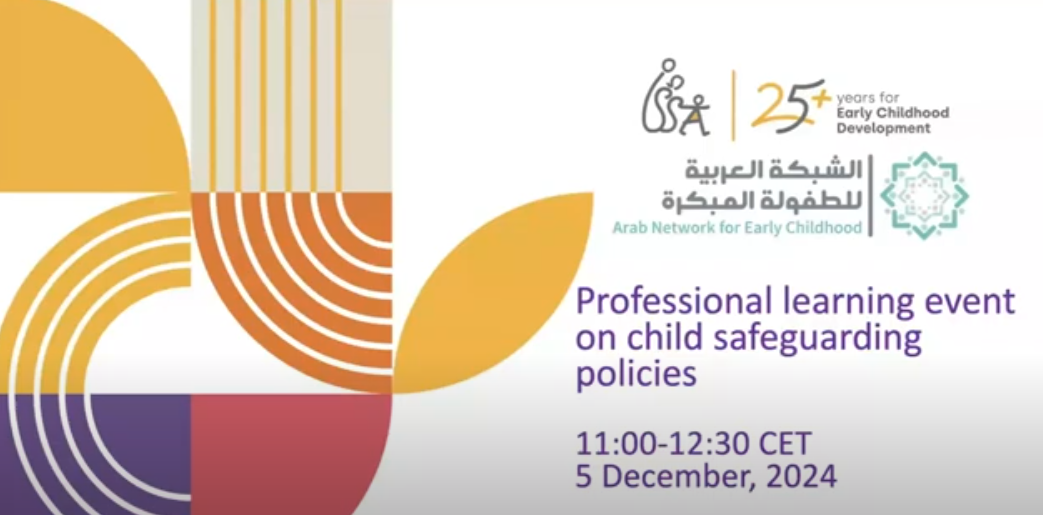We Communicate For Happy Children
 A learning Event by ANECD and ISSA on Child Safeguarding Policies
A learning Event by ANECD and ISSA on Child Safeguarding Policies 
Based on the understanding that child safeguarding is a shared responsibility, the Arab Network for Early Childhood (ANECD) and the International Step by Step Association (ISSA) jointly organized an online learning event on child safeguarding policies.
The event aimed to equip organizations and institutions concerned with children’s affairs with best practices for developing safeguarding policies and ensuring the safety of children across all aspects of their operations and personnel, including advocacy, and then working to put the practices into action. It also provided practical insights and opportunities to enhance knowledge and learn from the experiences of others in developing child safeguarding measures within organizations. Additionally, the event offered an overview of how organizations and networks operate, highlighting the significance of internal alignment to place child safeguarding at the core of institutional efforts and caregiving practices.
The event addressed the importance of having a robust child safeguarding policy and the key components of a comprehensive framework for such protection. This section was presented by the event’s guest speaker, Margaret Tuite, Chair of the Board of the Child Rights International Network (CRIN), Board Member of the International Juvenile Justice Observatory (IJJO), and Board Chair of Children of Prisoners Europe (COPE). She is also a member of the Independent Panel of Experts for Child Protection. Tuite has an extensive background with the European Union, where she served for 33 years, including her role as the EU Coordinator for Children’s Rights at the European Commission from 2011 to 2018.
Tuite explained that such policy provides a clear framework for preventing abuse, identifying risks, and responding to concerns, emphasizing that it also plays a role in empowering children. She underscored the importance of ensuring that all service providers/ employees and caregivers possess a consistent minimum level of knowledge to effectively safeguard children. Additionally, she outlined the key components of a comprehensive child safeguarding policy, covering aspects related to partners, national laws, training, recruitment, and accountability.
Additionally, ANECD presented its child safeguarding policy, which encompass principles, reporting mechanisms, guidelines, and more. In this context, Grace Boutros, Senior Partnerships and Development Coordinator, explained that ANECD, along with the Arab Resource Collective (ARC), from which it originated, established its child safeguarding policy based on setting guiding principles and defining an approach characterized by integration, comprehensiveness, and inclusivity.
The next step involved defining and standardizing the terminology and concepts to be adopted by ANECD and ARC, paving the way for focused implementation on more specific scopes. Boutros also emphasized that what ANECD has incorporated into its policy is not only what should be avoided but also what should be done and encouraged, addressing the importance of dealing with theoretical issues in contrast to practical matters.
This was followed by a comprehensive discussion focused on how to establish robust safeguarding culture, grounded on the exchange of experiences and expertise from various countries.
